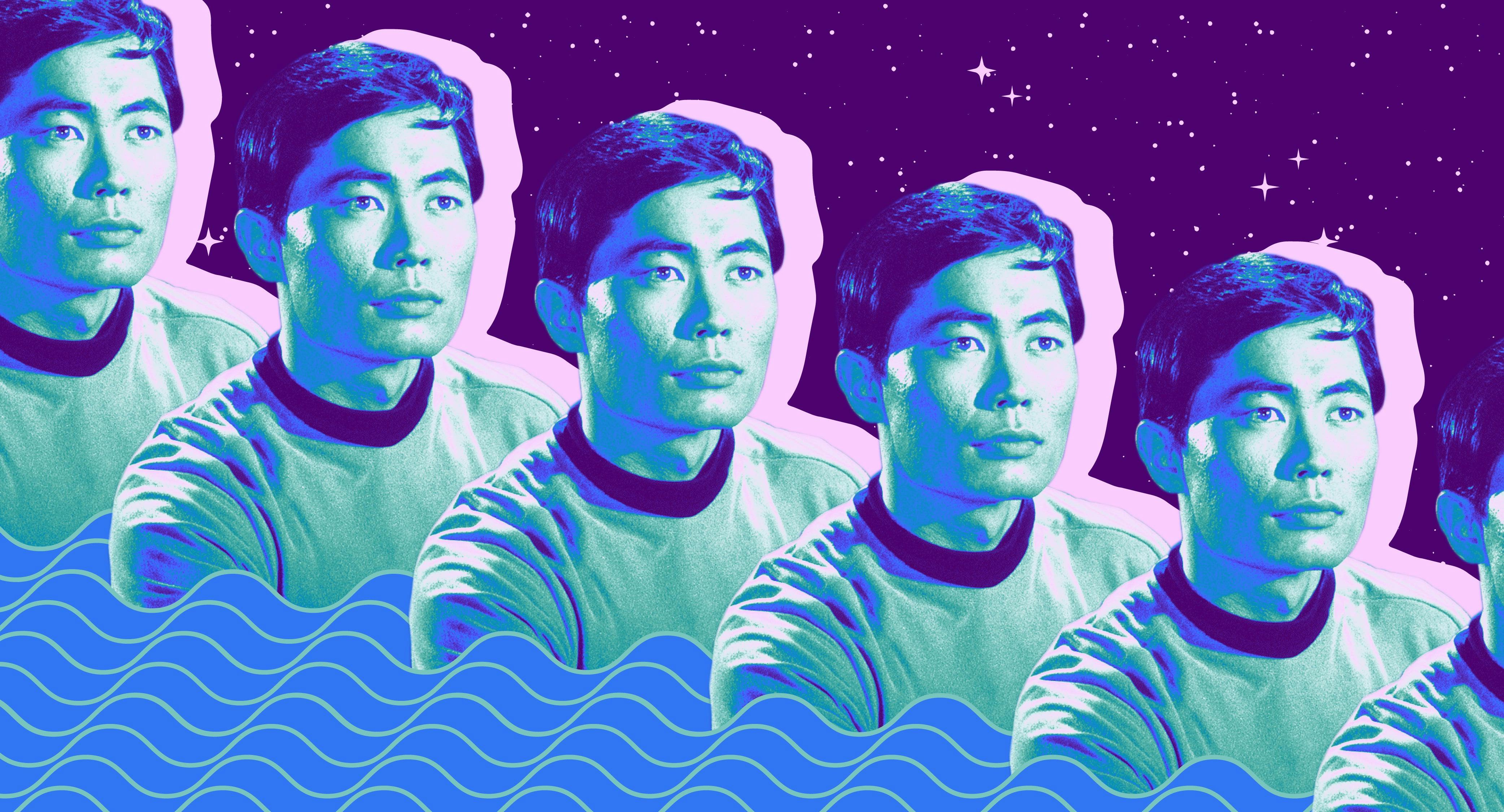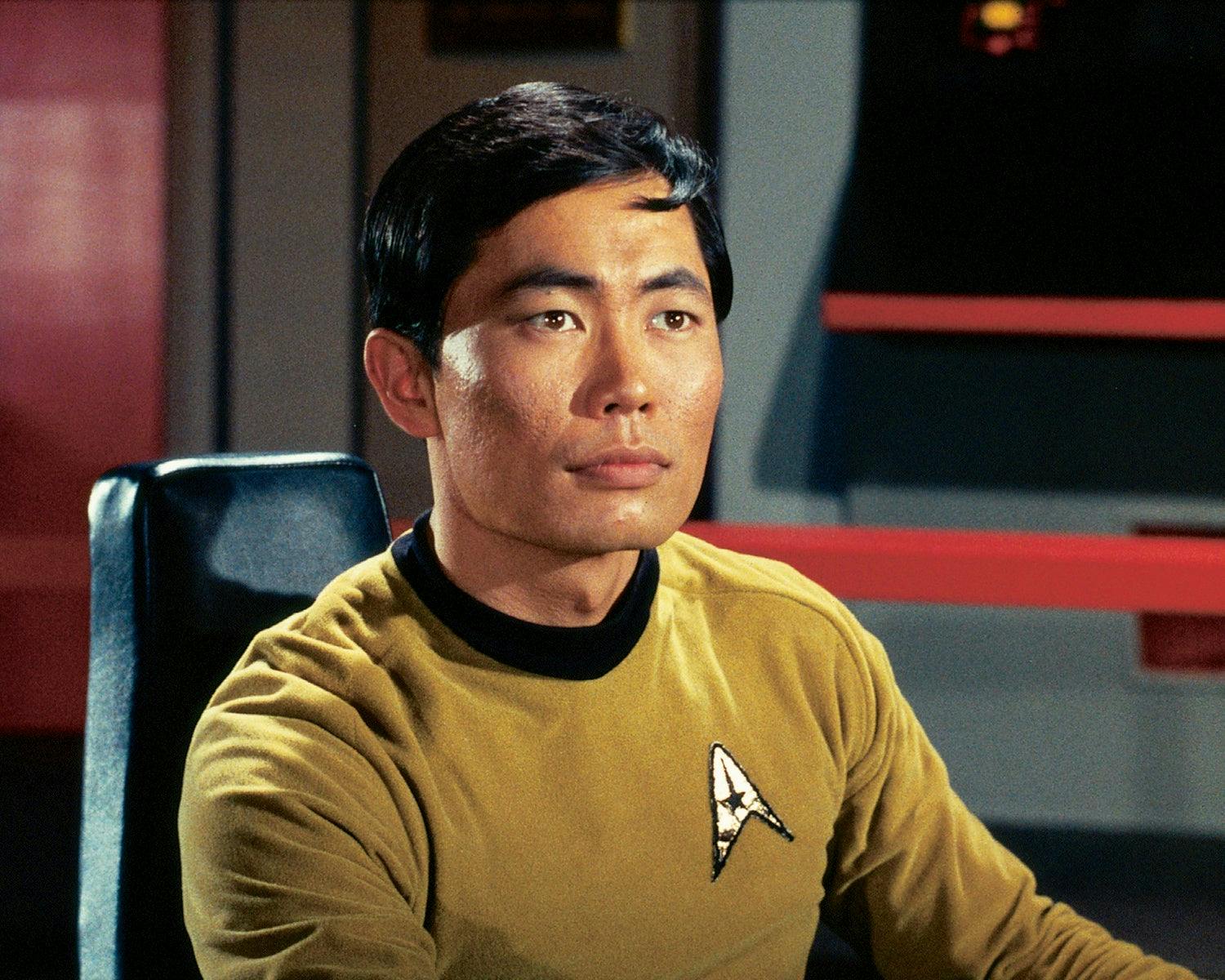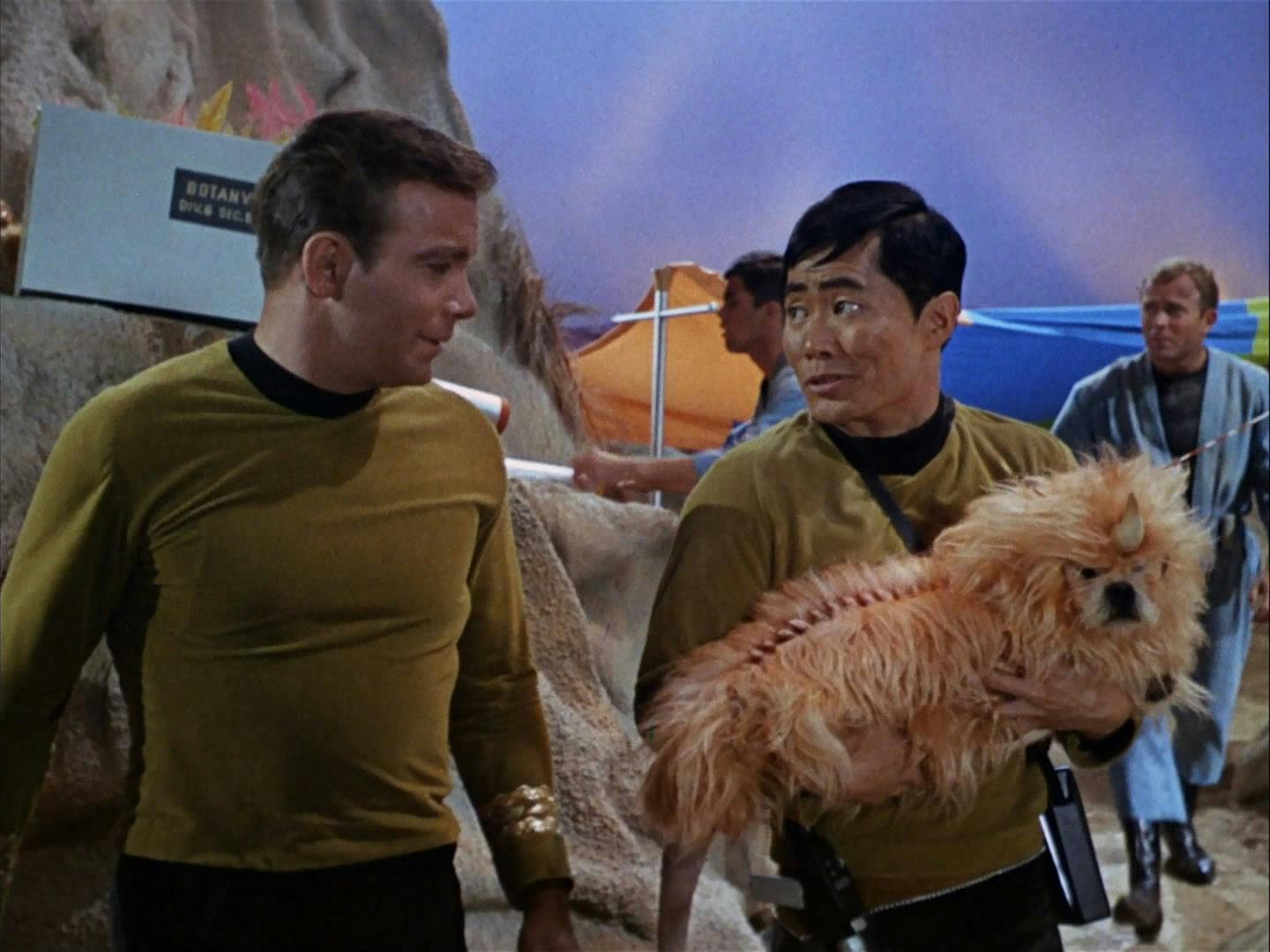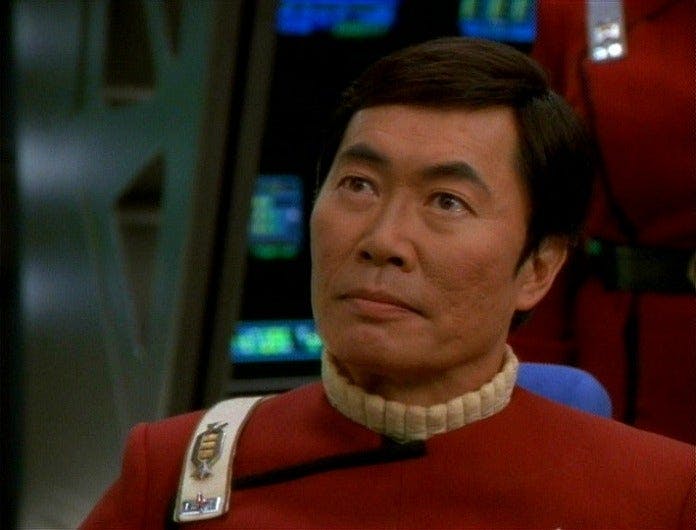Published Jun 6, 2022
Gene Roddenberry Planted the Seeds for Asian Representation and Acceptance
Roddenberry's utopian vision helped shaped the depiction of Asian characters onscreen

StarTrek.com
When I first saw Sulu in Star Trek: The Original Series in the 1970's, it blew my mind. As a child, seeing an Asian man on mainstream TV treated as a friend and equal by his white peers was unheard of. I only realized later the impact his character would have on my psyche and those of countless others. Sulu’s inclusion in Star Trek was groundbreaking. His presence and personality helped to positively shape Western views of Asian Americans. Other Asian actors have since followed in his footsteps.
According to George Takei, Gene Roddenberry said "that the Starship Enterprise was a metaphor for Starship Earth, and the strength of this starship lay in its diversity coming together." Takei was the original Sulu, a Japanese-American cast to represent all of Asia. The character’s name came from the Sulu Sea, which touches several Asian countries. (In the spirit of Roddenberry, Korean-American John Cho was cast as the new Sulu in the reboot movie series.) Thanks to Roddenberry's belief in strength in diversity, he gave us Sulu whose presence helped normalize and integrate Asians into North American culture for the past six decades.
Roddenberry was ahead of his time. Back in the 1960's, he already intuited that there needed to be representation of minorities in his show. They would be seen as real people. Sadly, the rest of society lagged. Western culture continued with underrepresentation of minorities, and even worse, misrepresentation. It wasn't until 2020, that the Black Lives Matter (BLM) movement made America conscious and motivated to change these practices. The effect spilled over to other minority groups, including Asians. Today we see a plethora of people of color in advertisements, TV, and movies.

StarTrek.com
What binds Star Trek fans together is Star Trek's idealistic portrayal of an ideal human civilization: exploring new worlds on a spaceship for the sake of curiosity and adventure, living in a world without poverty or money, and living in a society where those from different cultures would be a reason for closeness rather than distance. There's a sense of inclusion, fairness, and wonder. When I meet fellow fans, I feel like we get each other and that my Asian ethnicity is seen as either a neutral or a positive.
I was born in Canada in 1970 and watched US TV channels. In 1994, I emigrated into the US, and became a dual citizen. I believe the impact of Star Trek on racism in both cultures to be comparable. As a Chinese-Canadian child, I was treated as the "other." In my heart, I wished to become white some day. I yearned to be accepted by the other kids. When I was growing up, the stereotypical Asian TV character was an evil male Karate fighter; sometimes it was a white man made up to look like an Asian man. He hurled strings of foreign verbiage at a white opponent before kicking butt. The other typical Asian character was a caricature of a somber, wise old man, with a long, white Fu Manchu. He used Kung Fu magic to kick butt.
Then, there were the commercials with a young Asian couple who admired their clean laundry. "Ancient Chinese secret," they said knowingly to each other, before looking at the camera. (Alas, there were no karate chops or shrieks involved in doing laundry.) In contrast, seeing Sulu on TV planted a seed in my brain that things didn't have to be this way. One day, I could be seen as part of the team -- a fellow citizen that belonged, not an alien to be feared or bullied (or work in a laundromat).
Sulu was of course no Asian stereotype. He was an everyday person with eccentricities, friends, and interests that went far beyond his Asian heritage. From the viewpoint of a second generation Asian American, I connect with his cultural mix. There are traditions and behaviors that I carry over from my Asian ancestral home while adopting many aspects of Western culture.

StarTrek.com
Over the course of the show, we see different aspects of Sulu. He had a good buddy, Chekhov, that he joked around with. He was a hard worker that was rewarded for his efforts and skill. He developed hobbies outside of his work, such as botany and fencing. In a memorable scene, while infected with a virus that lowers the crew’s inhibitions, he gets carried away with fencing. Shirtless and thinking he's a Musketeer, he comically confronts crew members in the ship's hallways in the episode “The Naked Time.”
Sulu is also portrayed as a regular guy, with a sense of humor. As part of the landing party to the planet Alfa 177 in “The Enemy Within,” he feels a fondness for a unicorn dog creature he discovers on the planet’s surface. Kirk forewarns that the temperature will drop to -120 degrees overnight, and later, Sulu and other crew members are stranded on the planet's surface awaiting repair of the transporter while back on the ship, Kirk is having an existential crisis as he contends with the evil Kirk. It's a bit of a nail-biting episode, with poor Sulu asking the Enterprise to hurry up and beam them back. When the temperature drops to -41 degrees, Sulu jokes to Kirk, "find a long rope somewhere and lower us down a pot of hot coffee." He adds, "rice wine will do, if you're short on coffee." He faces the challenge of being on a freezing planet with humor, rather than with fear.
Sulu is also portrayed as being a loyal friend who stands by his crew. Decades later in the Star Trek universe, Sulu opens up about his loyalty to his friends on Voyager ("Flashback.") He tells Tuvok:
"You'll find that more happens on the bridge of a starship than just carrying out orders and observing regulations.There is a sense of loyalty to the men and women you serve with. A sense of family. Those two men [Kirk and McCoy] on trial... I served with them for a long time. I owe them my life a dozen times over. And right now, they're in trouble and I'm going to help them; let the regulations be damned."
Regulations be damned. Sheesh! Another tear-jerker, Star Trek!

StarTrek.com
After The Original Series, Star Trek continued to push the theme of being inclusive of Asian Americans. Deep Space Nine introduced an interracial relationship between Miles O'Brien and his wife Keiko. More recently, in Discovery and Picard, we see female Asian lead characters such as both Emperor and Captain Philippa Georgiou, and the synth, Soji Asha. They don't come with an Asian culture connection. Rather, they're everyday people who happen to look Asian. Okay, everyday aliens and androids that happen to look Asian.
In Voyager, Harry Kim is a real catch. He's handsome, smart, likable, and well-rounded. He is also a notoriously awkward dater. Kim's buddy, Tom Paris, thinks Kim goes after the wrong women. Some of my favorite scenes from Star Trek are when Kim attempts to start an intimate relationship with Seven. She more than takes the bait, stunning Kim.
This new way of casting characters feels like progress. It reflects the increased integration of Asians into mainstream culture. In my opinion, Star Trek still remains one step ahead of everyone else in carrying the torch for integrated minority representation on TV.
As we saw during the pandemic, violence against Asians increased. It exposed the underlying racism against Asians still present in our country. Even so, I have hope things will improve. We as Asians have already come this far with regards to representation thanks to people like Gene Roddenberry. Sulu is more than a TV character to me. He represents a great quality of life for American Asians.
Karen Ni (she/her) is a psychiatrist and writer. She is from Ottawa and lives on the Olympic Peninsula where she enjoys performing improv comedy and singing.
